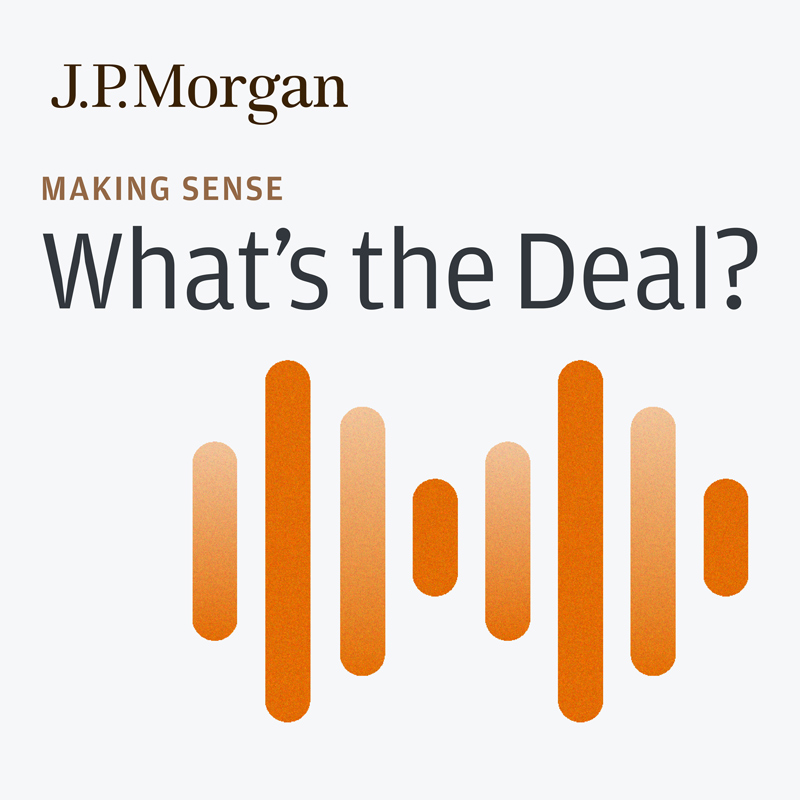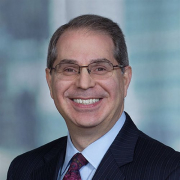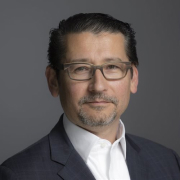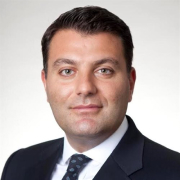Global Shareholder Activism Activity
Our leaders from the Shareholder Engagement and M&A Capital Markets team reflect on global activism trends.

Global shareholder activism
insights
Shareholder activism has continued to rise over the past year, though activity has started to shift. In the U.S., activist shareholders are focusing their efforts on companies with larger market capitalization while in EMEA, campaigns have increased 29%. Our leaders share their in-depth insights on the global trends they are seeing.
Key global activism
trends
What is behind the rise in shareholder activism?

As shareholder activism gains momentum worldwide, David Freedman, Alfredo Porretti and Darren Novak from our Shareholder Engagement and M&A Capital Markets team shed light on key trends covering universal proxy rules, the capital allocation debate, M&A activity and the overall global outlook. Learn how boards and management teams can prepare for activism efforts and navigate the evolving business environment.
Preparing for activist
investor activity
“Shareholder activism is growing globally, including in the U.S., where newer investors with ties to established activists are targeting larger companies. Multiple activists are involved, each with different approaches, making defense strategies more complex.”

David Freedman
Global Chairman of Investment Banking
“It's crucial for companies to be proactive in mitigating activist risks. Clear communication, action and alignment on valuation, portfolio composition, capital allocation and board composition are fundamental strategies to get ahead of these challenges.”

Darren Novak
Global Co-Head of Shareholder Engagement and M&A Capital Markets
“As private activist campaigns become public and M&A markets recover, there will be increased activism targeting companies with potential for transactions. While not revolutionary, universal proxy rules encourage more activism, hinting at increased future activity. Long-term readiness involves staying informed on activism trends, understanding vulnerabilities and having a prepared team with advisors in place.”

Alfredo Porretti
Global Co-Head of Shareholder Engagement and M&A Capital Markets
Related insights
-

Investment Banking
Global M&A Market Outlooks
January 08, 2026
Explore key trends that shaped the M&A market over the past year and find out what lies ahead.
-

-

This material (including market commentary, market data, observations or the like) has been prepared by personnel in the Mergers & Acquisitions Group of JPMorgan Chase & Co. It has not been reviewed, endorsed or otherwise approved by, and is not a work product of, any research department of JPMorgan Chase & Co. and/or its affiliates (“J.P. Morgan”). Any views or opinions expressed herein are solely those of the individual authors and may differ from the views and opinions expressed by other departments or divisions of J.P. Morgan. This material is for the general information of our clients only and is a “solicitation” only as that term is used within CFTC Rule 1.71 and 23.605 promulgated under the U.S. Commodity Exchange Act.
RESTRICTED DISTRIBUTION: This material is distributed by the relevant J.P. Morgan entities that possess the necessary licenses to distribute the material in the respective countries. This material is proprietary and confidential to J.P. Morgan and is for your personal use only. Any distribution, copy, reprints and/or forward to others without permission from, or attribution to, J.P. Morgan is strictly prohibited.
This material is intended merely to highlight market developments and is not intended to be comprehensive and does not constitute investment, legal or tax advice, nor does it constitute an offer or solicitation for the purchase or sale of any financial instrument or a recommendation for any investment product or strategy.
Information contained in this material has been obtained from sources believed to be reliable but no representation or warranty is made by J.P. Morgan as to the quality, completeness, accuracy, fitness for a particular purpose or non-infringement of such information. Sources of third party referred to herein retain all rights with respect to such data, and use of such data by J.P. Morgan herein shall not be deemed to grant a license to any third party. In no event shall J.P. Morgan be liable (whether in contract, tort, equity or otherwise) for any use by any party of, for any decision made or action taken by any party in reliance upon, or for any inaccuracies or errors in, or omissions from, the information contained herein and such information may not be relied upon by you in evaluating the merits of participating in any transaction. All information contained herein is as of the date referenced and is subject to change without notice. All market statistics are based on announced transactions. Numbers in various tables may not sum due to rounding.
J.P. Morgan may have positions (long or short), effect transactions, or make markets in securities or financial instruments mentioned herein (or options with respect thereto), or provide advice or loans to, or participate in the underwriting or restructuring of the obligations of, issuers mentioned herein. All transactions presented herein are for illustration purposes only. J.P. Morgan does not make representations or warranties as to the legal, tax, credit, or accounting treatment of any such transactions, or any other effects similar transactions may have on you or your affiliates. You should consult with your own advisors as to such matters.
The use of any third-party trademarks or brand names is for informational purposes only and does not imply an endorsement by JPMorgan Chase & Co. or that such trademark owner has authorized JPMorgan Chase & Co. to promote its products or services.
J.P. Morgan is the marketing name for the investment banking activities of JPMorgan Chase Bank, N.A., J.P. Morgan Securities LLC (member, NYSE), J.P. Morgan Securities plc (authorized by the Prudential Regulation Authority and regulated by the Financial Conduct Authority and the Prudential Regulation Authority), J.P. Morgan AG (authorized by the German Federal Financial Supervisory Authority (BaFin) and regulated by BaFin and the German Central Bank (Deutsche Bundesbank), J.P. Morgan Securities Australia Limited (ABN 61 003 245 234/AFS Licence No: 238066 and regulated by Australian Securities and Investments Commission) and their investment banking affiliates. J.P. Morgan Securities plc is exempt from the licensing provisions of the Financial and Intermediary Services Act, 2002 (South Africa).
For Brazil: Ombudsman J.P. Morgan: 0800-7700847 / ouvidoria.jp.morgan@jpmorgan.com
For Australia: This material is issued and distributed by J.P. Morgan Securities Australia Limited (ABN 61 003 245 234/ AFS Licence No: 238066) (regulated by ASIC) for the benefit of “wholesale clients” only. This material does not take into account the specific investment objectives, financial situation or particular needs of the recipient. The recipient of this material must not distribute it to any third party or outside Australia without the prior written consent of J.P. Morgan Securities Australia Limited.
For information on any J.P.Morgan German legal entity see: https://www.jpmorgan.com/country/US/en/disclosures/legal-entity-information#germany
For information on any other J.P.Morgan legal entity see: https://www.jpmorgan.com/country/GB/EN/disclosures/investment-bank-legal-entity-disclosures